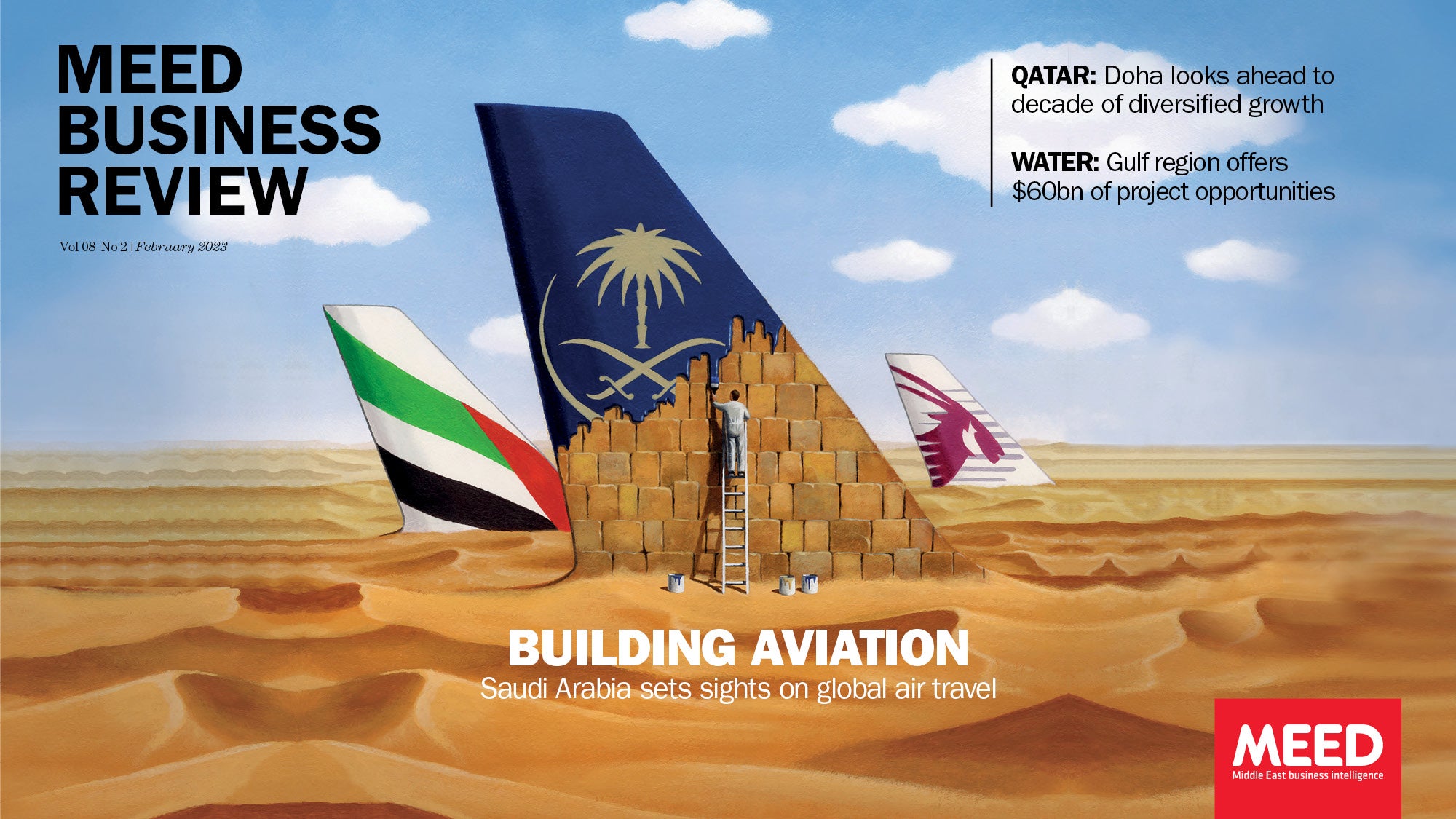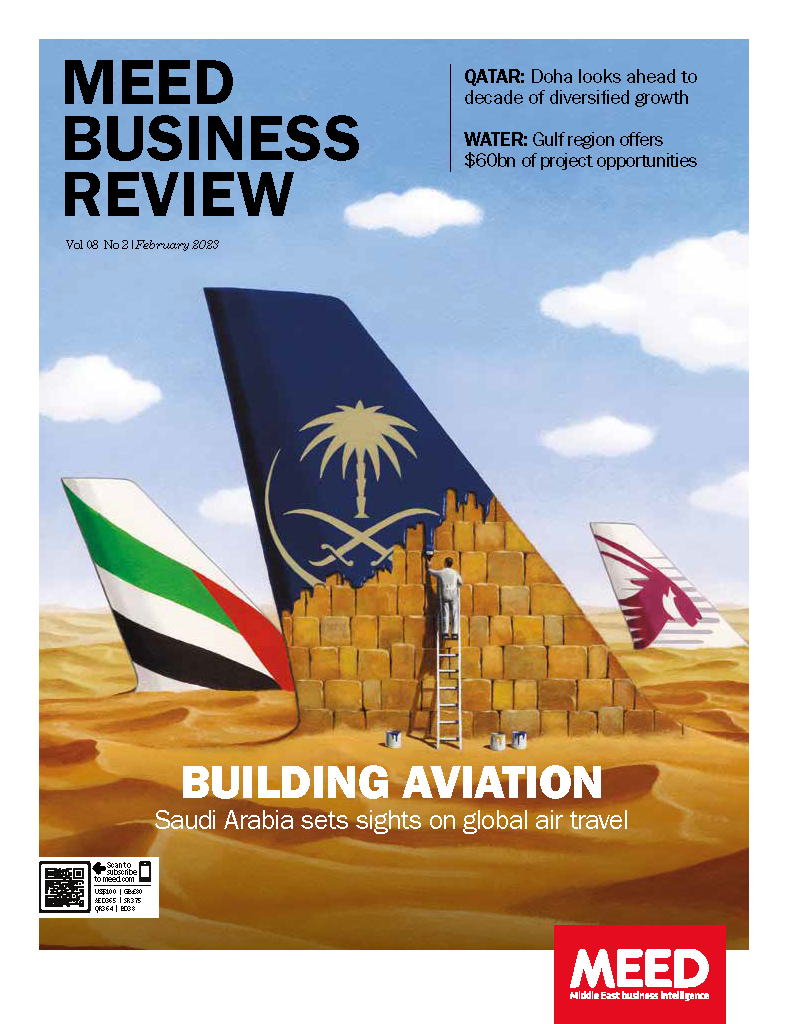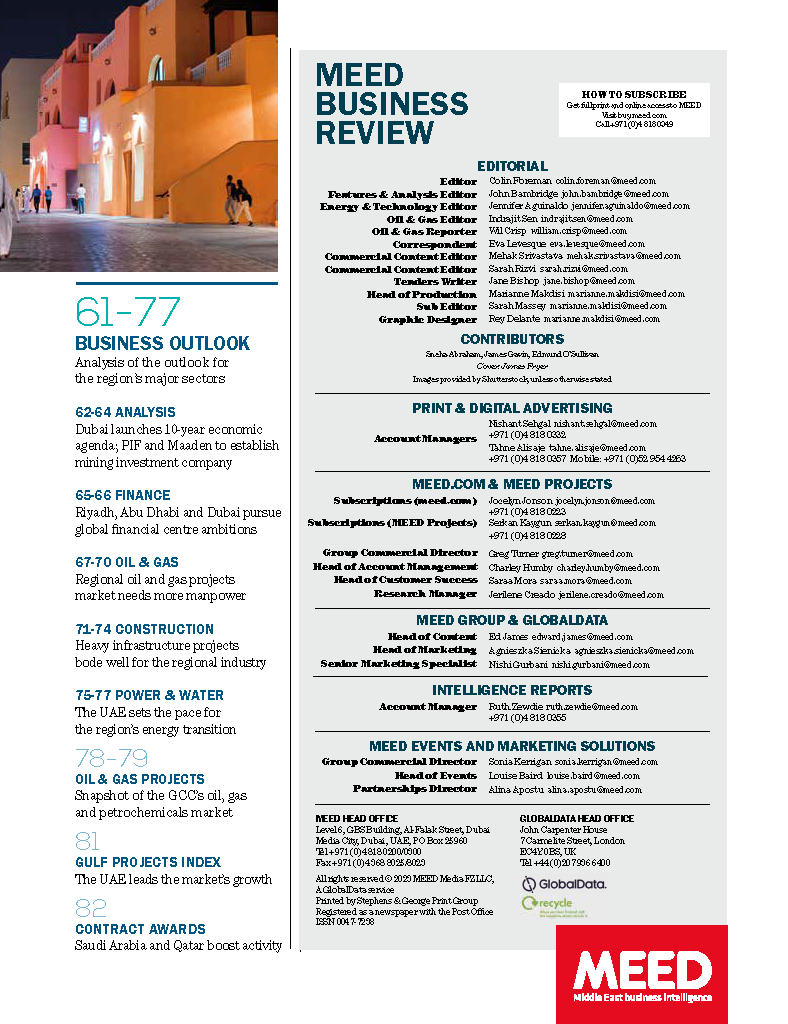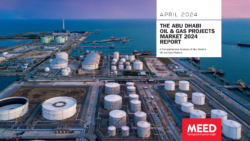Description
About this month’s cover stories:
Saudi Arabia on global aviation.
The Saudi capital aims to become a major international air travel hub by 2030.
Riyadh’s ambitions to take its air travel industry international are a game changer for the Middle East.
To achieve this, the kingdom plans to invest $100bn in the expansion and enhancement of its aviation sector – efforts that will build on the role of the UAE and Qatar as well-established international aviation hubs.
The February 2023 issue of MEED Business Review explores how the region’s air traffic map could be transformed by Riyadh’s Saudi Aviation Strategy over the next seven years.
MEED also looks at airports under construction and planned in the region as the Gulf aviation sector vies for pole position in the global market.
This month’s industry report includes MEED’s 2023 GCC desalination developer ranking. Saudi utility developer Acwa Power and France’s Engie continue to dominate the line-up, each having cornered one of the two independent water producer (IWP) contracts awarded between 2021 and 2022.
The report also reveals that there are $60bn of water project opportunities in the GCC, as growing security, efficiency and sustainability concerns drive demand for water.
Our 15-page special report on World Cup host Qatar, meanwhile, finds the country looking to new goals, but with sports still in mind.
We hope you enjoy the February 2023 edition of MEED Business Review.
From the Editor:
The industry most immediately affected by the Covid-19 pandemic was aviation. As the virus spread around the world in early 2020, the world’s airports and airlines universally ground to a halt.
For projects, existing schemes continued but were disrupted, and future projects were put on the back burner as governments focused on current rather than future challenges. While the initial impact of the recovery was uniform, the recovery has not been. Backed by financially strong governments, the GCC’s aviation sector has been spared much of the turmoil that has affected other regions where airports remained closed for extended periods of time and airlines have gone out of business.
The best indicator of the strength of GCC aviation came in January when Emirates said it was back to about 80 per cent of its pre-pandemic levels and with the opening up of the Chinese market. As Beijing shifts away from its zero-Covid strategy, the Dubai-based airline expects to move closer to 100 per cent this year. With the rebound of traffic numbers, the focus has switched to the future. The difference is that, unlike past cycles when the UAE has been at the forefront of the GCC’s aviation ambitions, this time Saudi Arabia is taking the lead.
In late November last year Riyadh announced plans to develop King Salman International airport, which aims to accommodate up to 120 million passengers a year by 2030 and 185 million passengers a year by 2050. Riyadh is also planning to launch a new international airline, and at Neom, plans are being prepared for another major international airport that could in the future accommodate 100 million passengers a year.
“Unlike past cycles when the UAE has been at the forefront of the GCC’s aviation ambitions, Saudi Arabia is taking the lead”
Saudi Arabia’s plans will challenge the status quo of GCC aviation. The question for 2023 will be how will the region’s more established airports and airlines respond?
Read more about this in our cover story of the February 2023 issue.
Colin Foreman is editor of MEED and has 20 years of experience reporting on projects and business in the Middle East and North Africa.
Editorial:
Editor – Colin Foreman
Features & Analysis Editor – John Bambridge
Energy & Technology Editor – Jennifer Aguinaldo
Oil & Gas Editor – Indrajit Sen
Oil & Gas Reporter – Wil Crisp
Commercial Content Editor – Mehak Srivastava
Commercial Content Editor – Sarah Rizvi
Tenders Writer – Jane Bishop
Head of Production – Marianne Makdisi
Sub Editor – Sneha Abraham
Graphic Designer – Rey Delante











